Subtraction practice Subtraction Worksheets for Ages 5-7
35 filtered results
-
From - To
Boost your child's subtraction skills with our engaging Subtraction Practice Worksheets for ages 5-7! Designed to make learning fun, our worksheets provide a colorful and interactive way for young learners to master subtraction basics. Perfect for kindergarten and early elementary students, these worksheets cover a range of difficulty levels, ensuring gradual progression and confidence building. With activities that include picture-based problems, word problems, and number equations, your kids will find learning subtraction both entertaining and educational. Download now from Kids Academy and make math practice an exciting daily activity for your young ones.
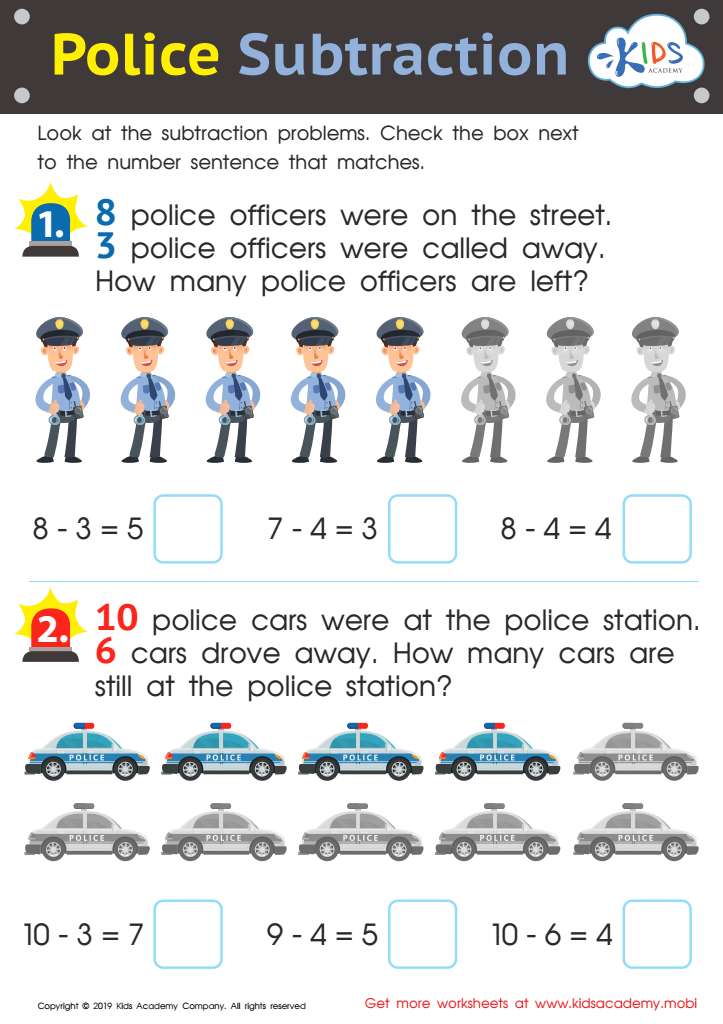

Police Subtraction Worksheet
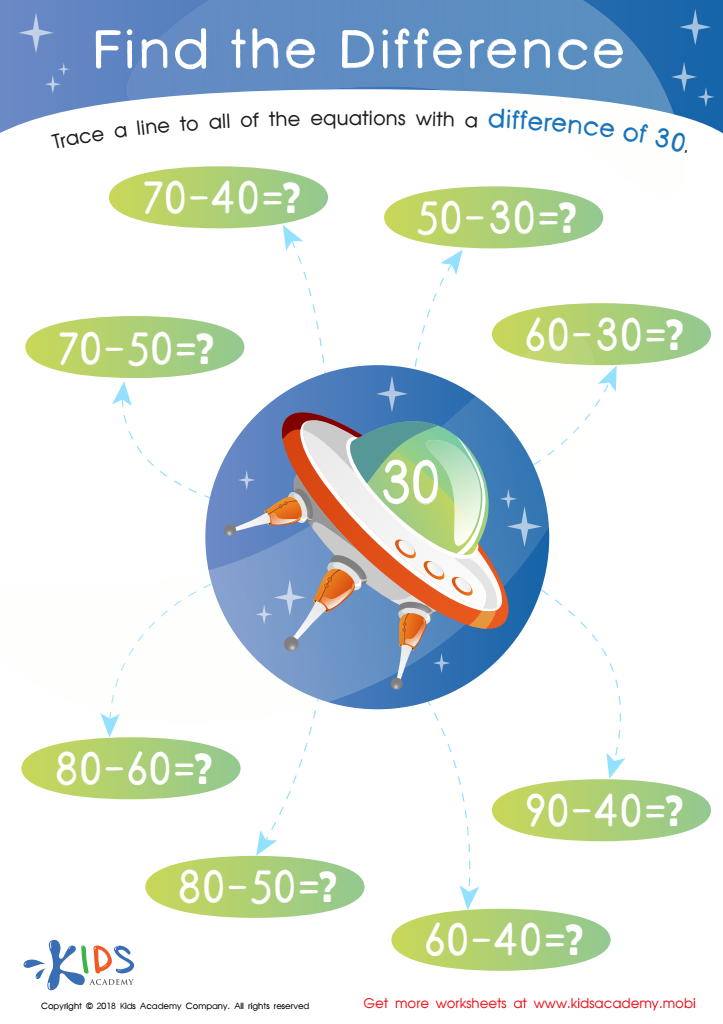

Find The Difference Worksheet
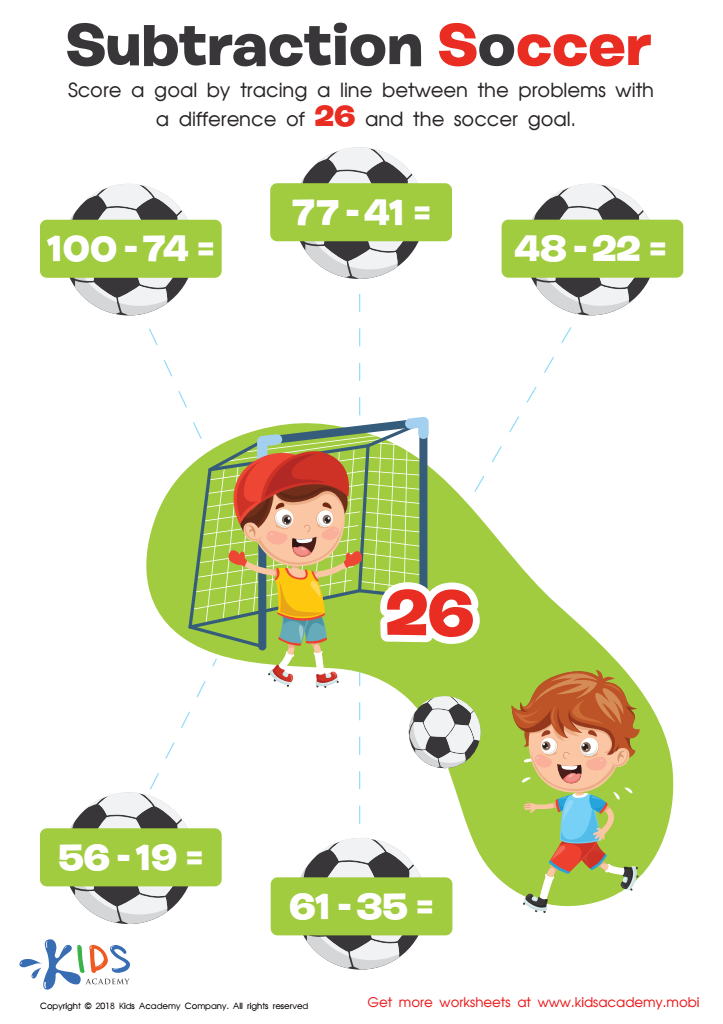

Subtraction Soccer Worksheet
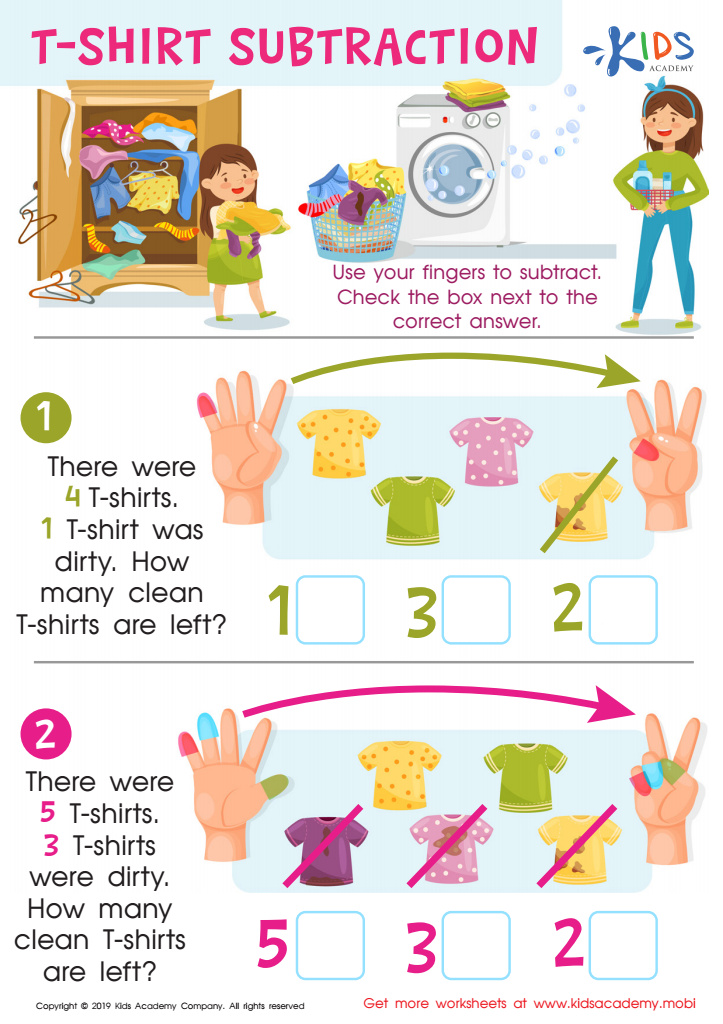

T-shirt Subtraction Worksheet
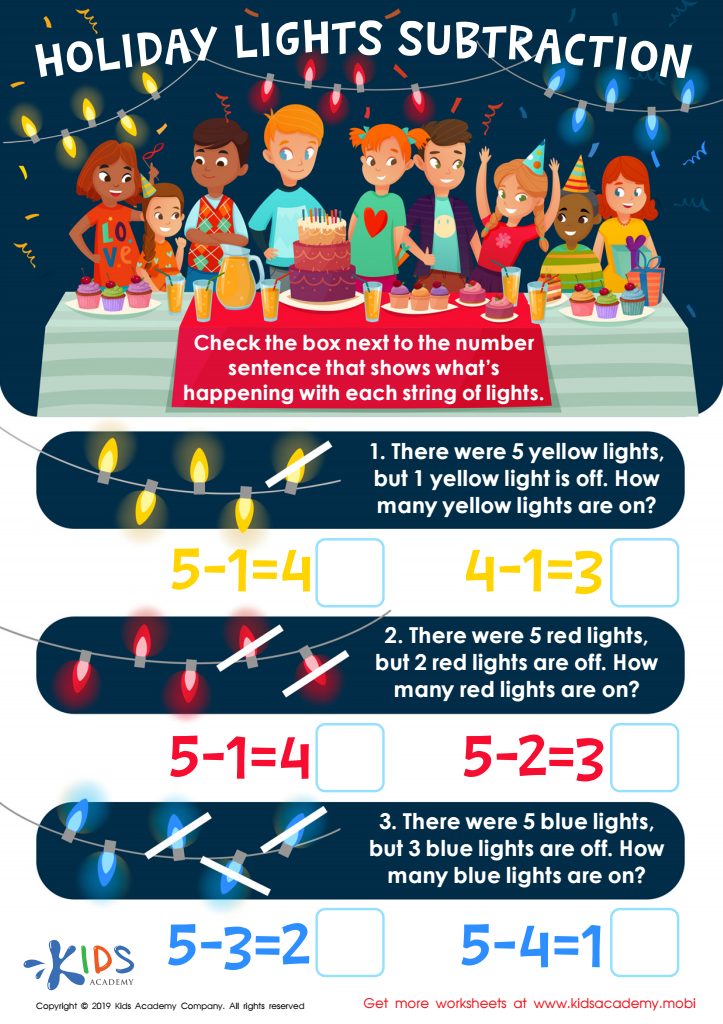

Holiday Lights Subtraction Worksheet
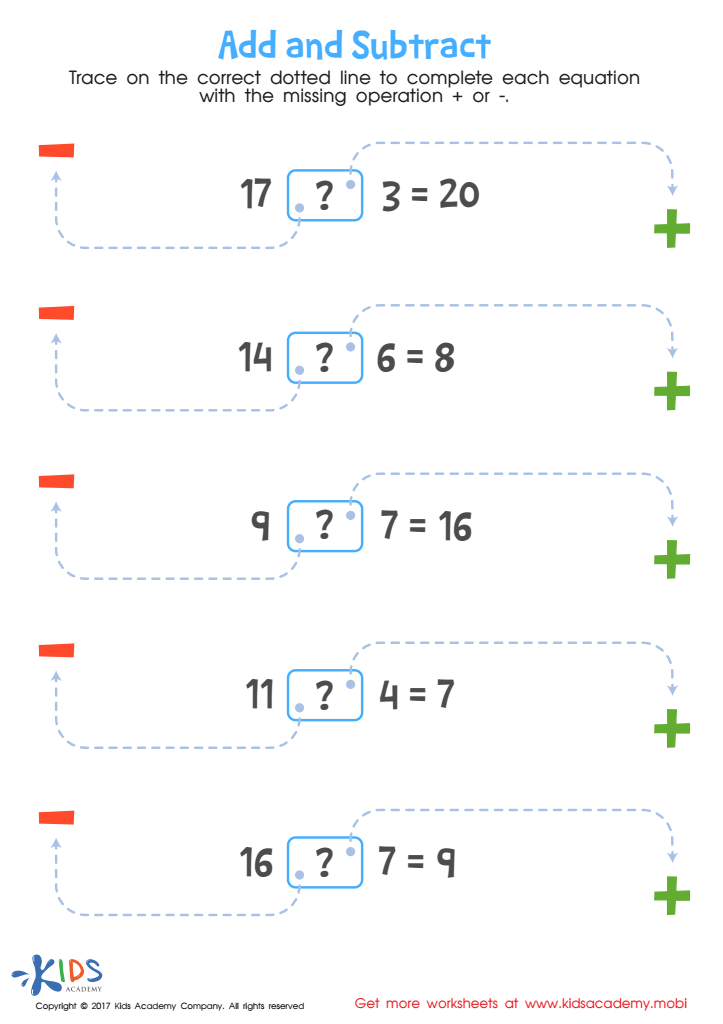

Add and Subtract Worksheet
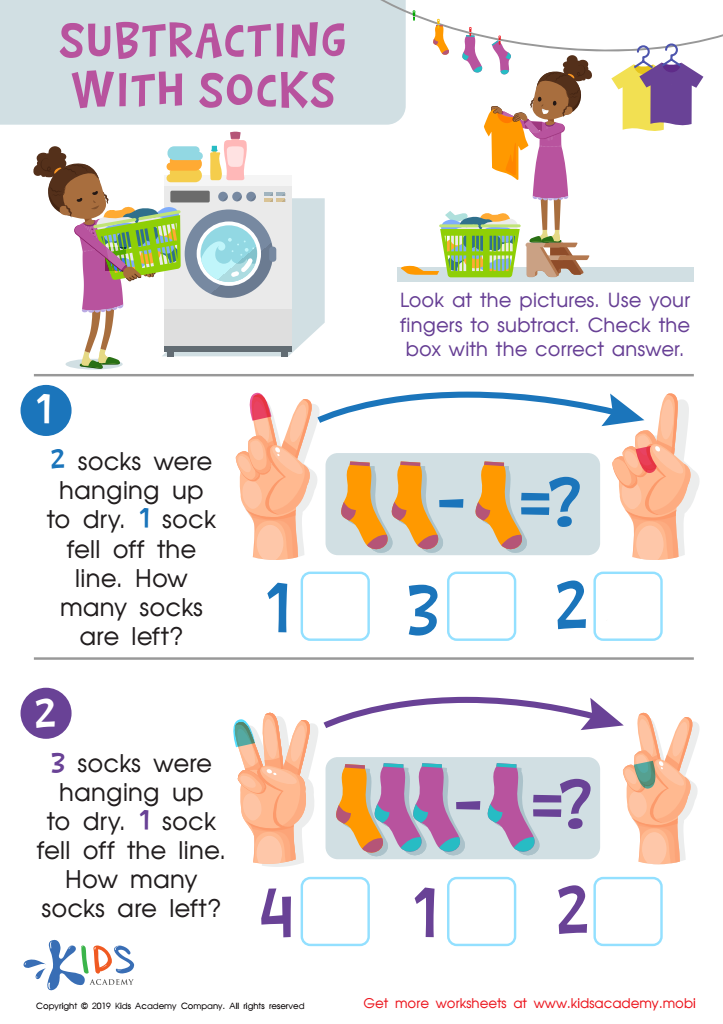

Subtracting Socks Worksheet
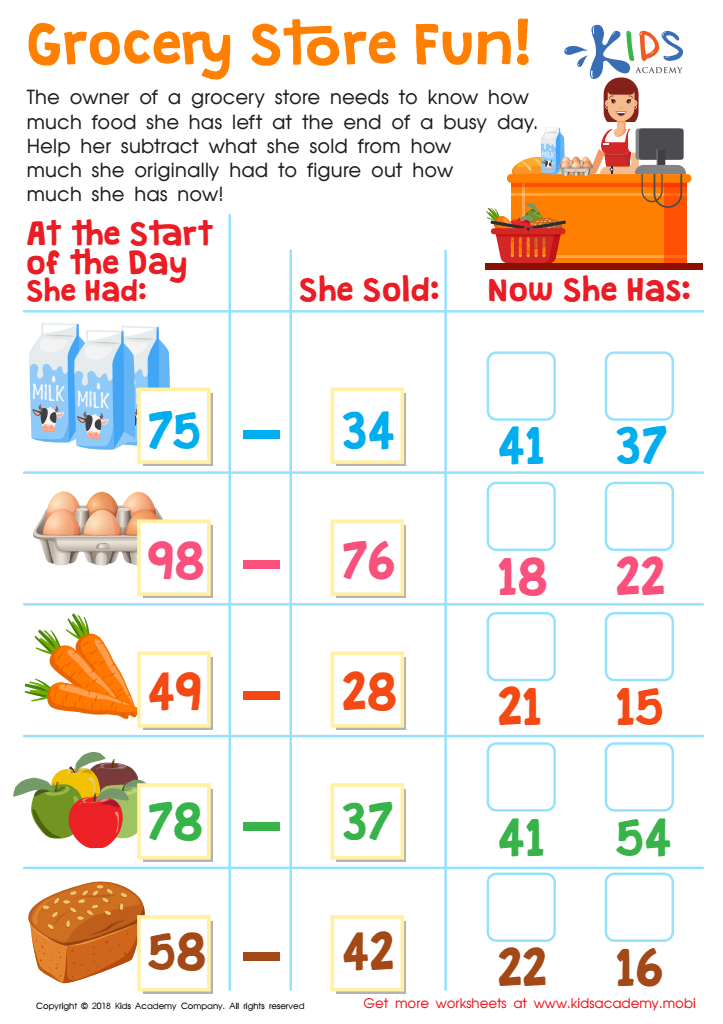

Grocery Store Fun! Worksheet
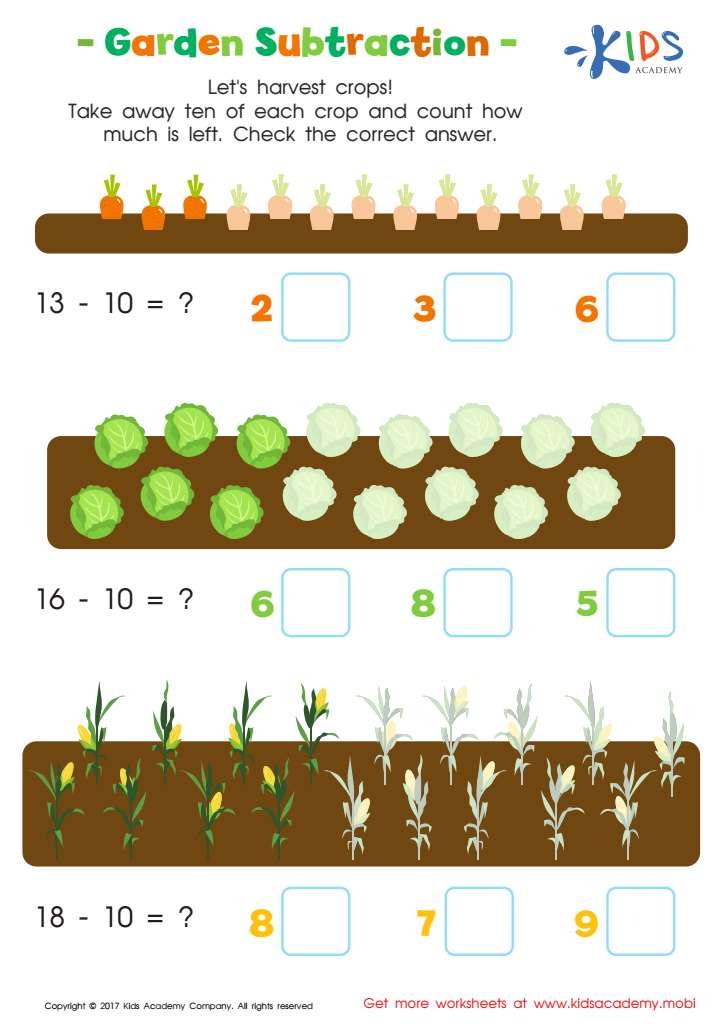

Garden Subtraction Worksheet
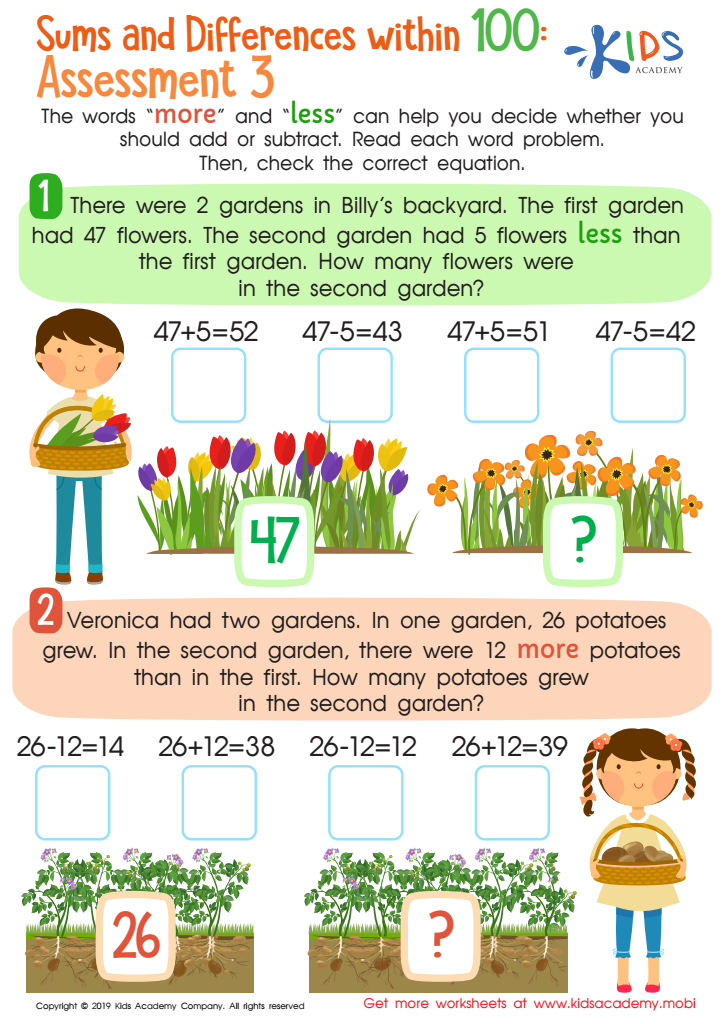

Sums and Differences Within 1 - Assessment 1 Worksheet
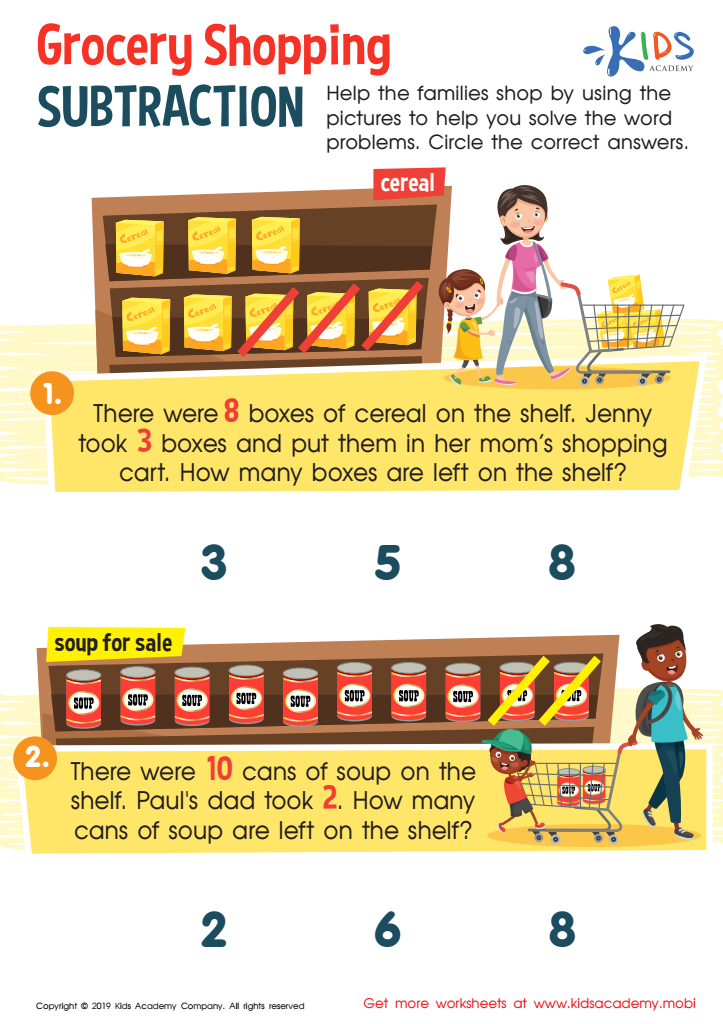

Grocery Shopping Subtraction Worksheet
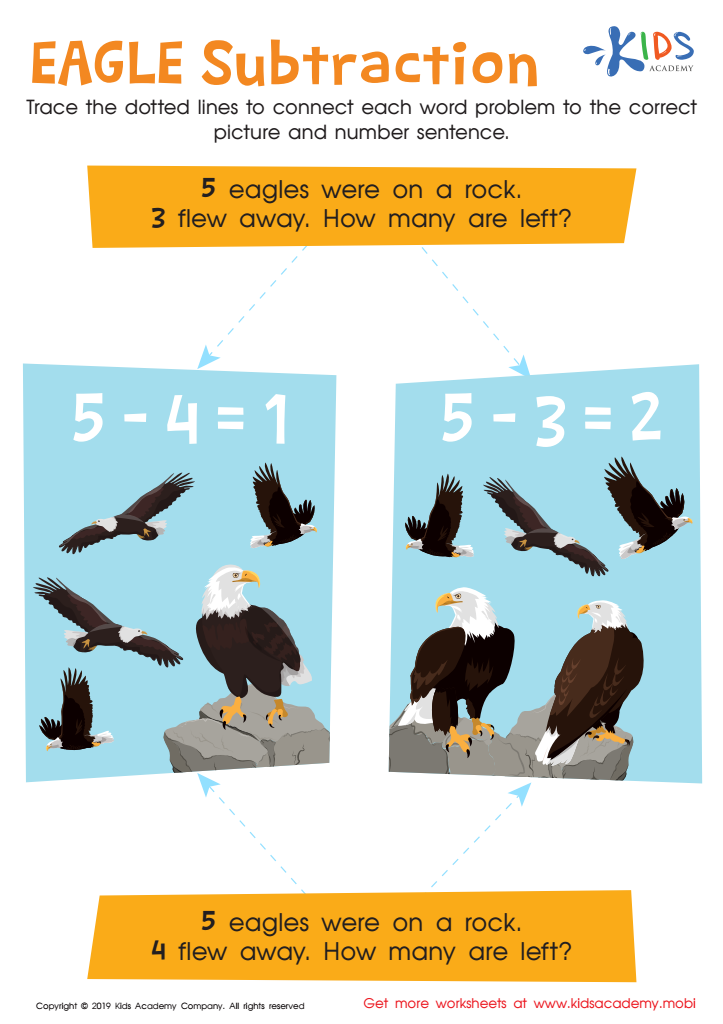

Eagle Subtraction Worksheet
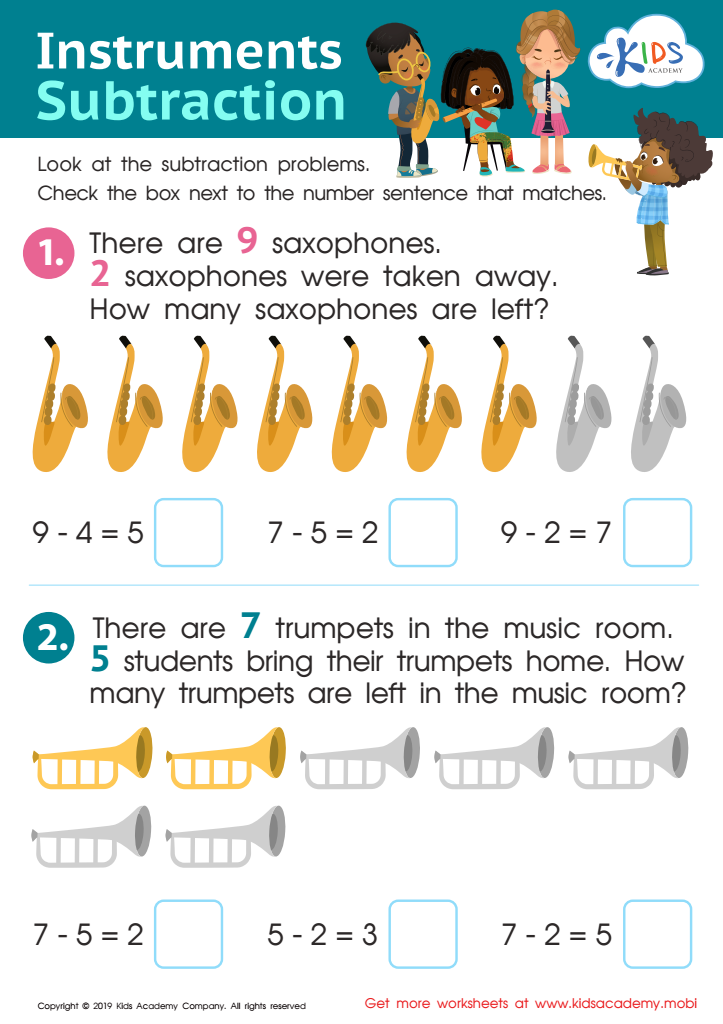

Instrument Subtraction Worksheet
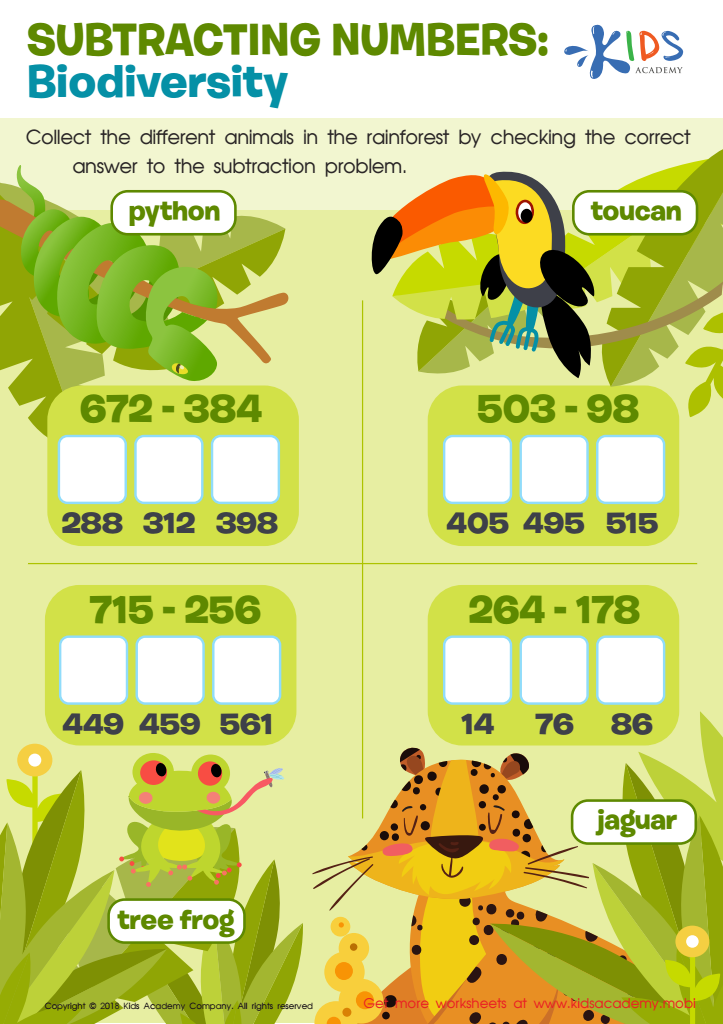

Subtracting Numbers: Biodiversity Worksheet
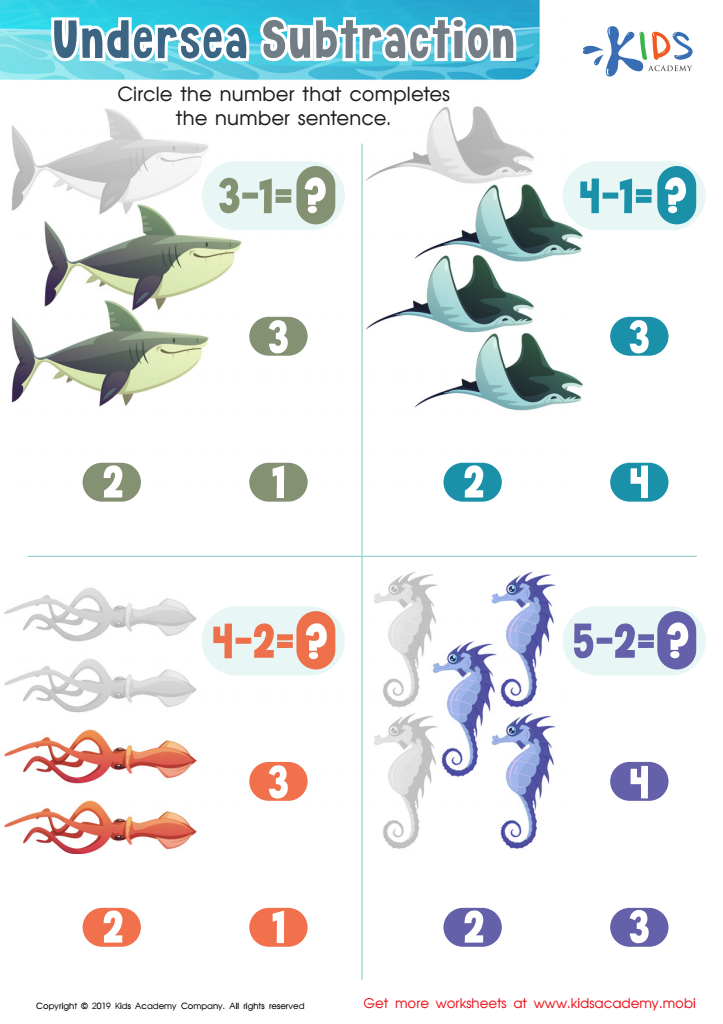

Undersea Subtraction Worksheet
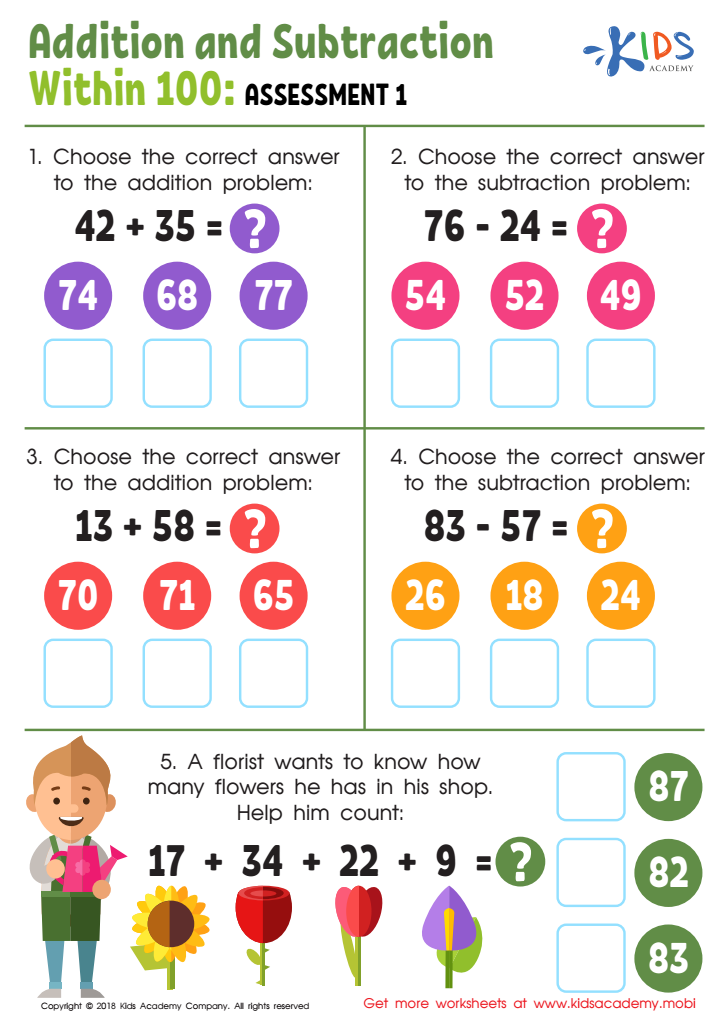

Addition and Subtraction Within 100 Worksheet
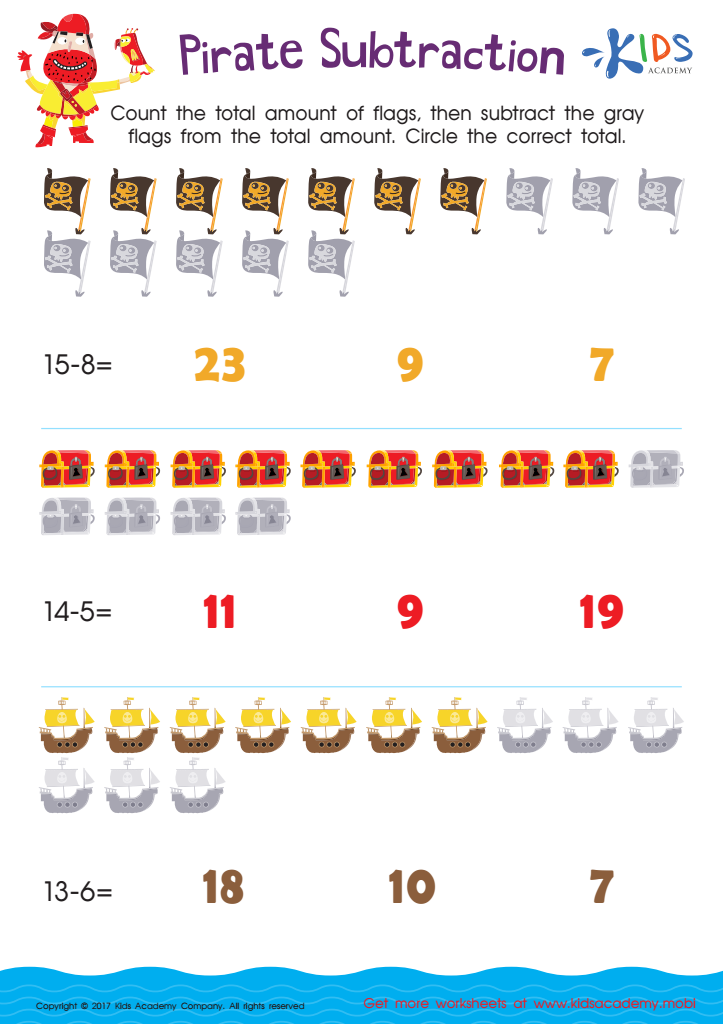

Pirate Subtraction Substraction Worksheet
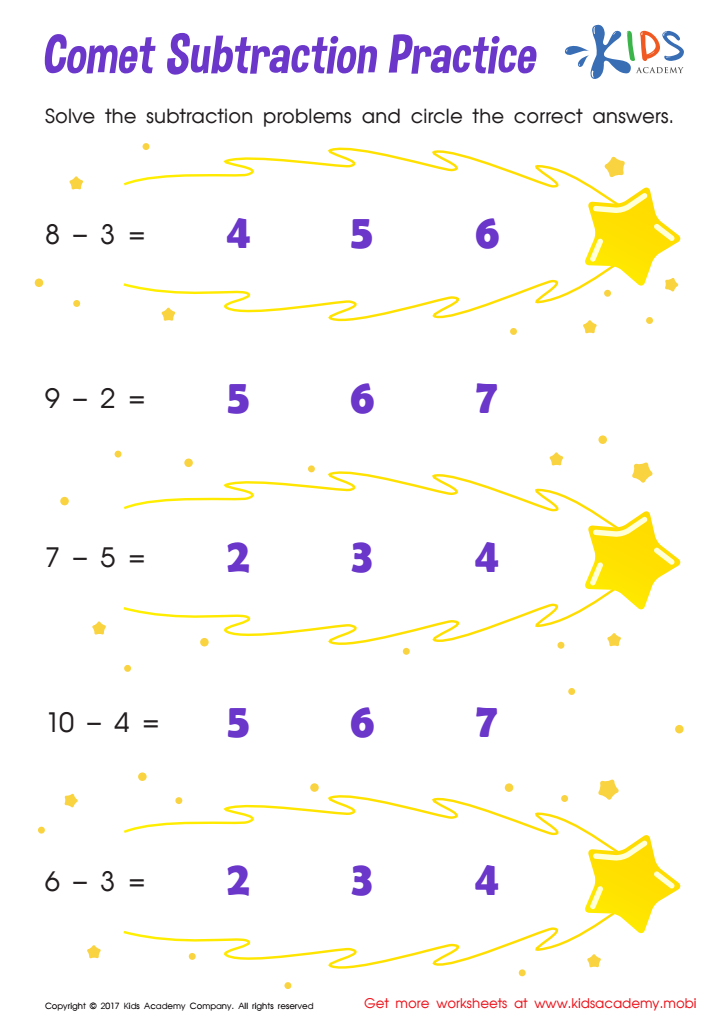

Comet Subtraction Practice Substraction Worksheet
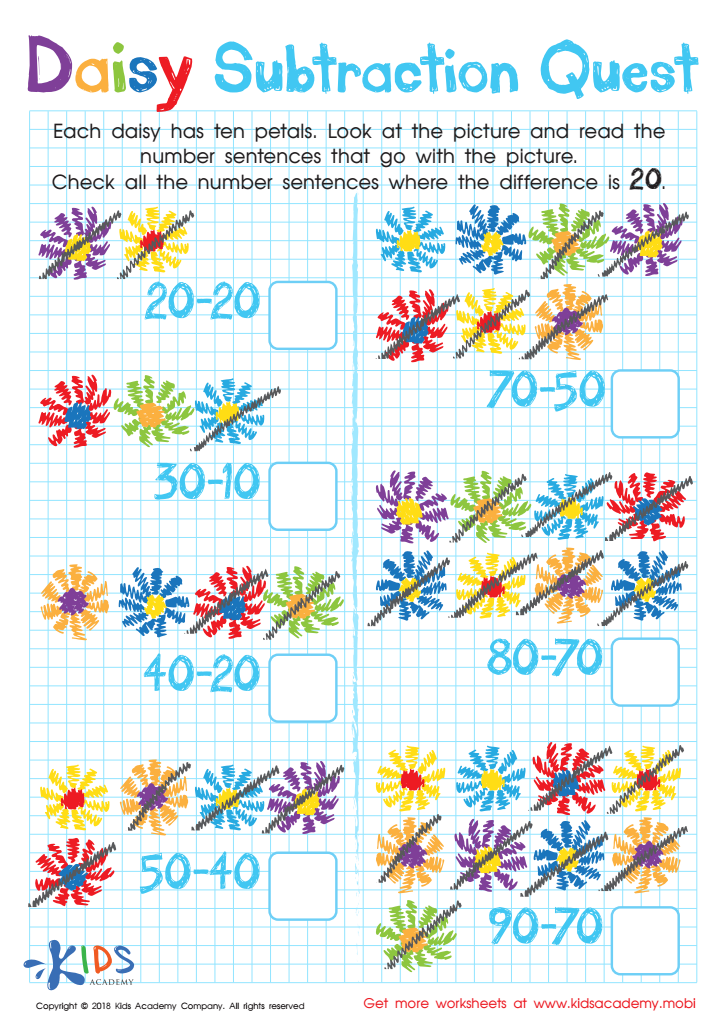

Daisy Subtraction Quest Worksheet
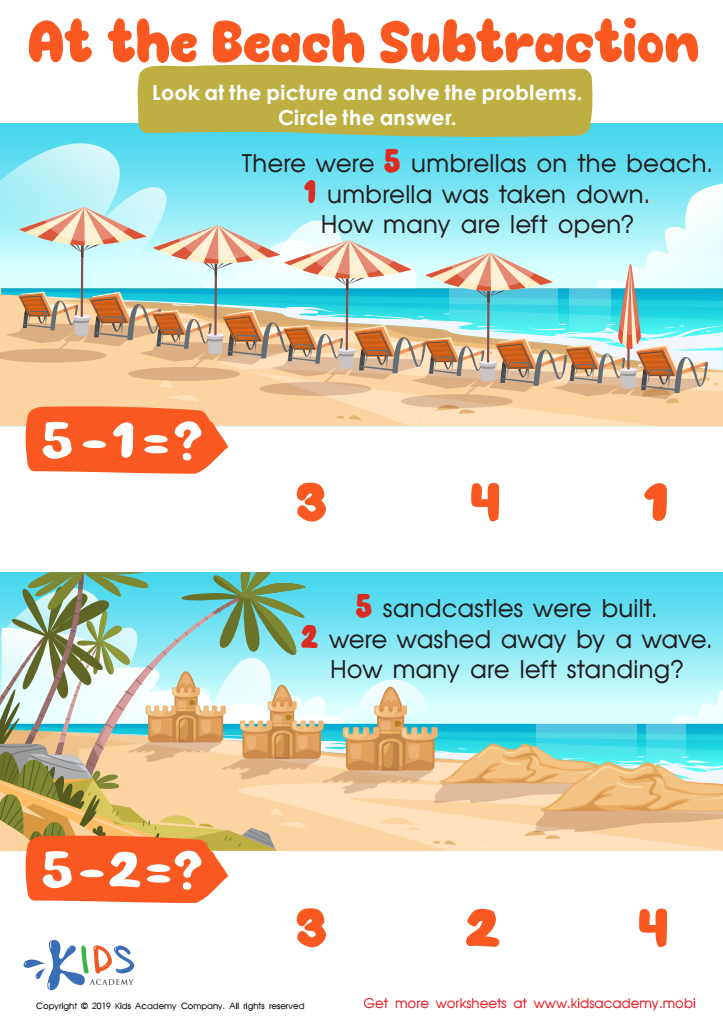

At the Beach Subtraction Worksheet
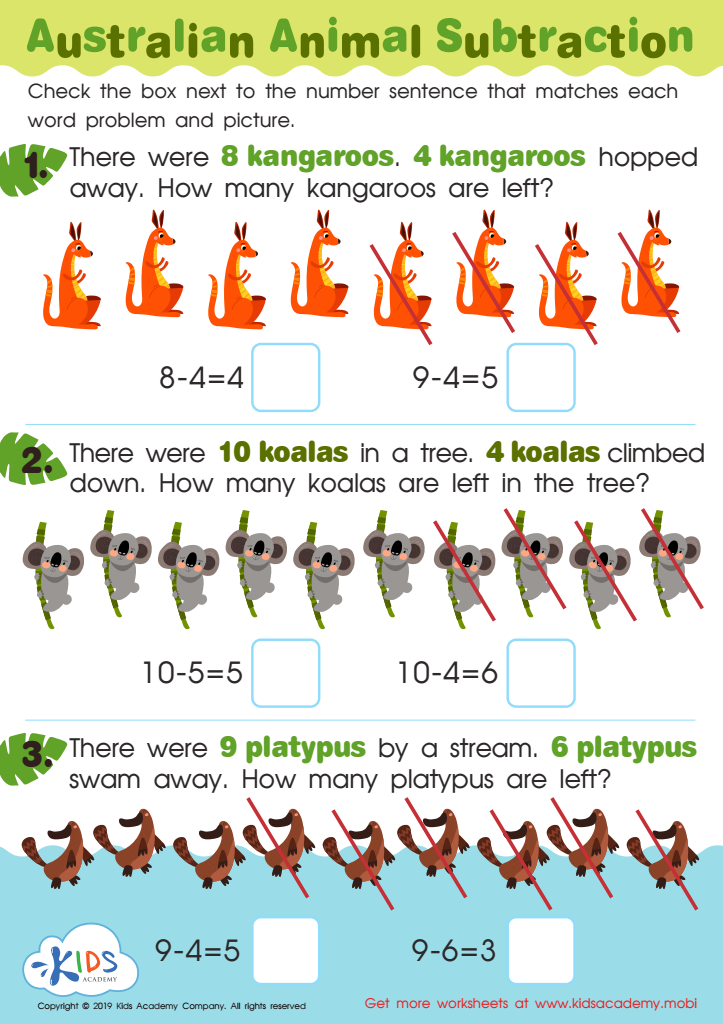

Australian Animal Subtraction Worksheet
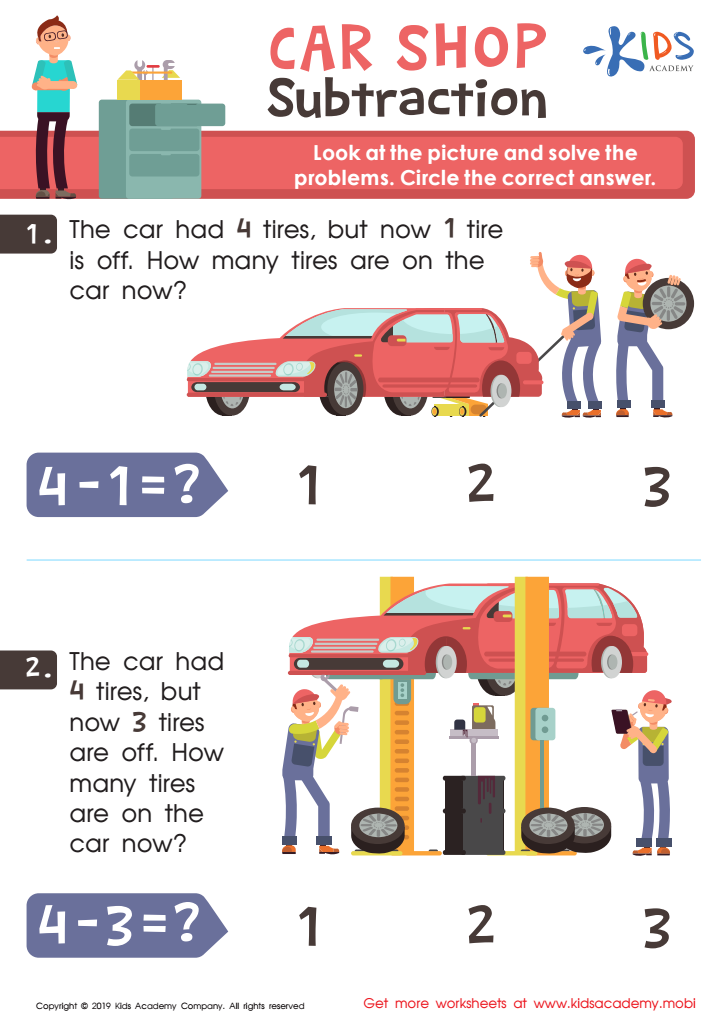

Car Shop Subtraction Worksheet
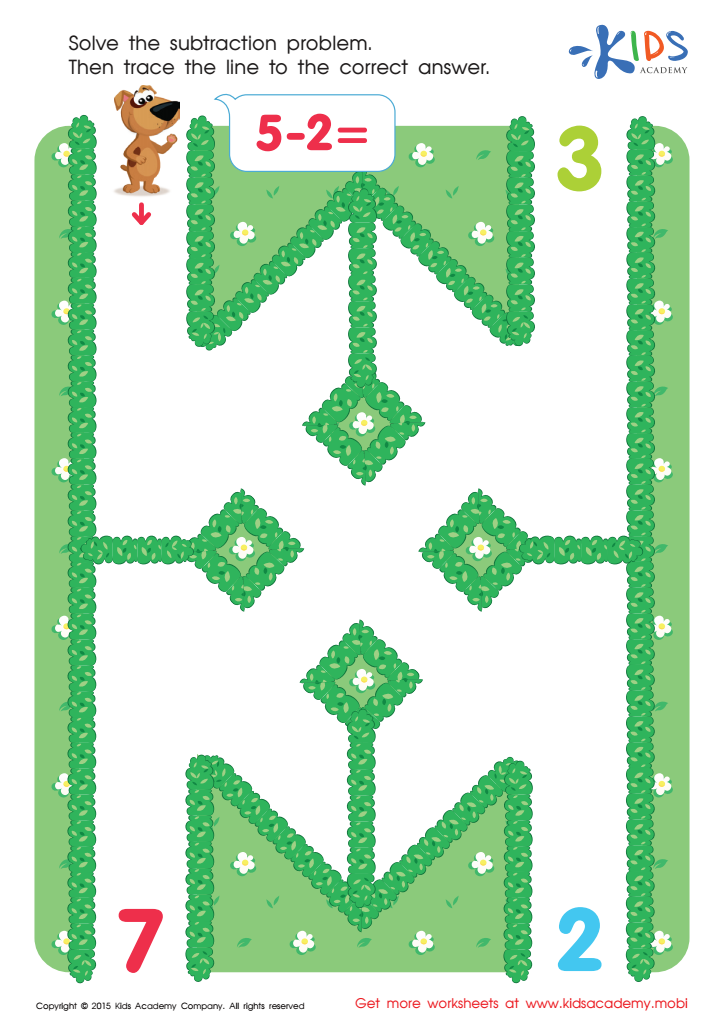

Five Minus Two Worksheet
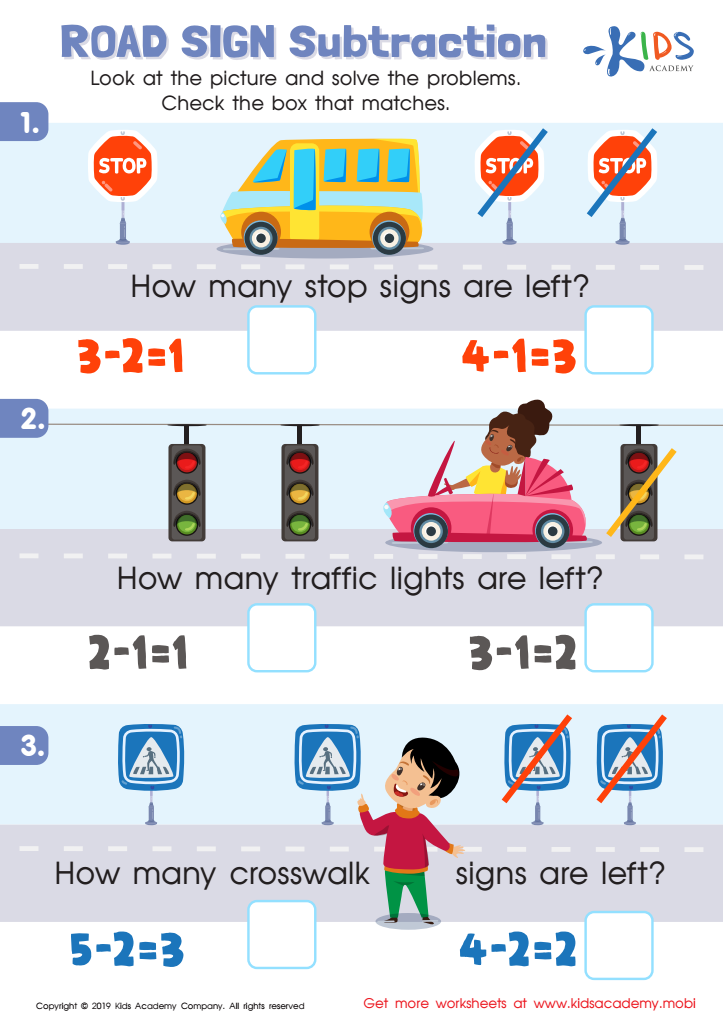

Road Sign Subtraction Worksheet
Practicing subtraction for children aged 5-7 is crucial for several foundational reasons. First and foremost, developing basic subtraction skills enhances their overall mathematical understanding and problem-solving ability. This age is a key period for cognitive development, and mastering fundamental math concepts like subtraction provides the building blocks for more complex mathematical concepts in the future.
Parents and teachers should care because subtraction is not just about numbers; it builds critical thinking and teaches children how to analyze and solve problems. For example, when children learn to subtract, they begin to understand relationships between numbers and how quantities change. This skill is applicable in everyday life, ensuring that children can function effectively in school and society.
Moreover, engaging with subtraction exercises helps improve concentration and attention to detail. Consistent practice can also bolster a child’s confidence when tackling math challenges, reducing math anxiety and fostering a positive attitude towards learning.
Lastly, early mastery of subtraction, along with other basic arithmetic operations, aligns with educational standards and ensures that children keep pace with curriculum expectations. Therefore, solid subtraction skills can lead to greater academic achievement across subjects and set a strong foundation for future educational success. Supporting young learners in this vital stage can significantly impact their long-term academic journey.

 Assign to My Students
Assign to My Students
















